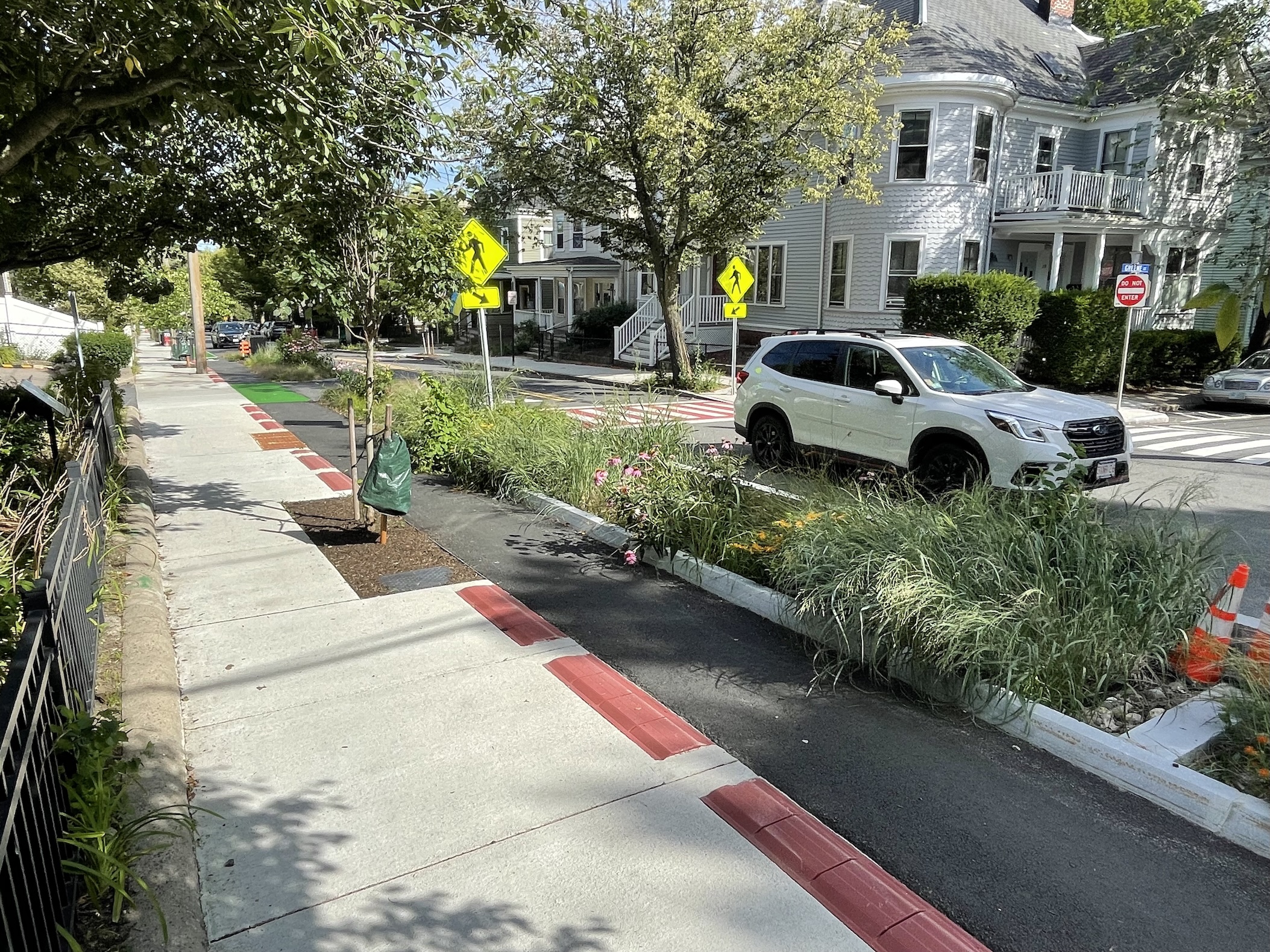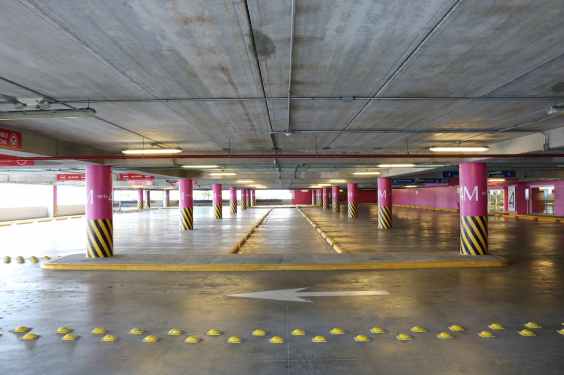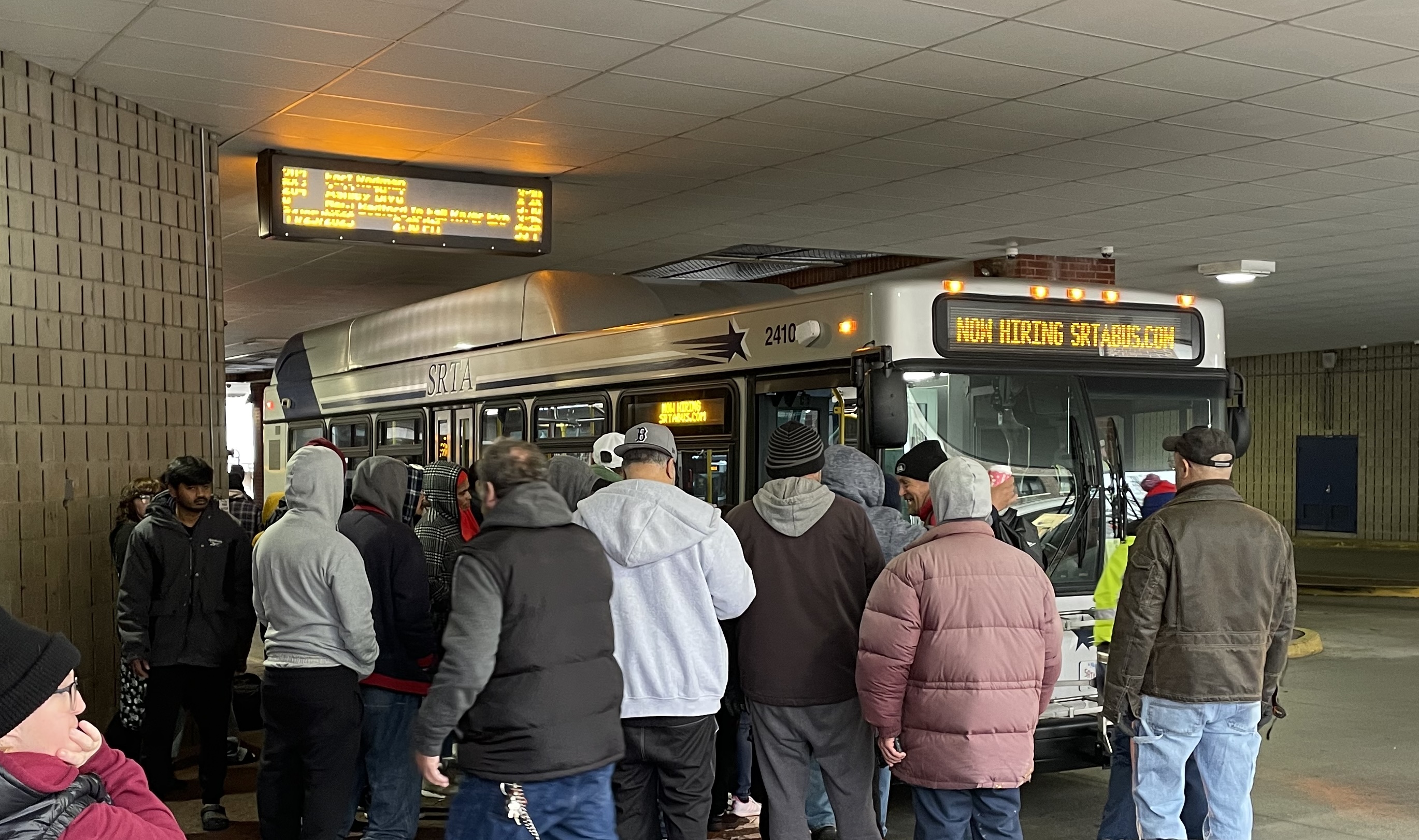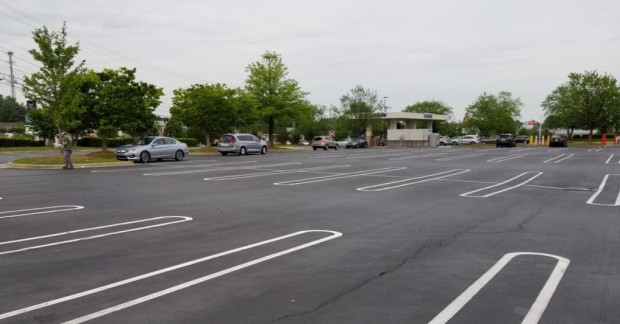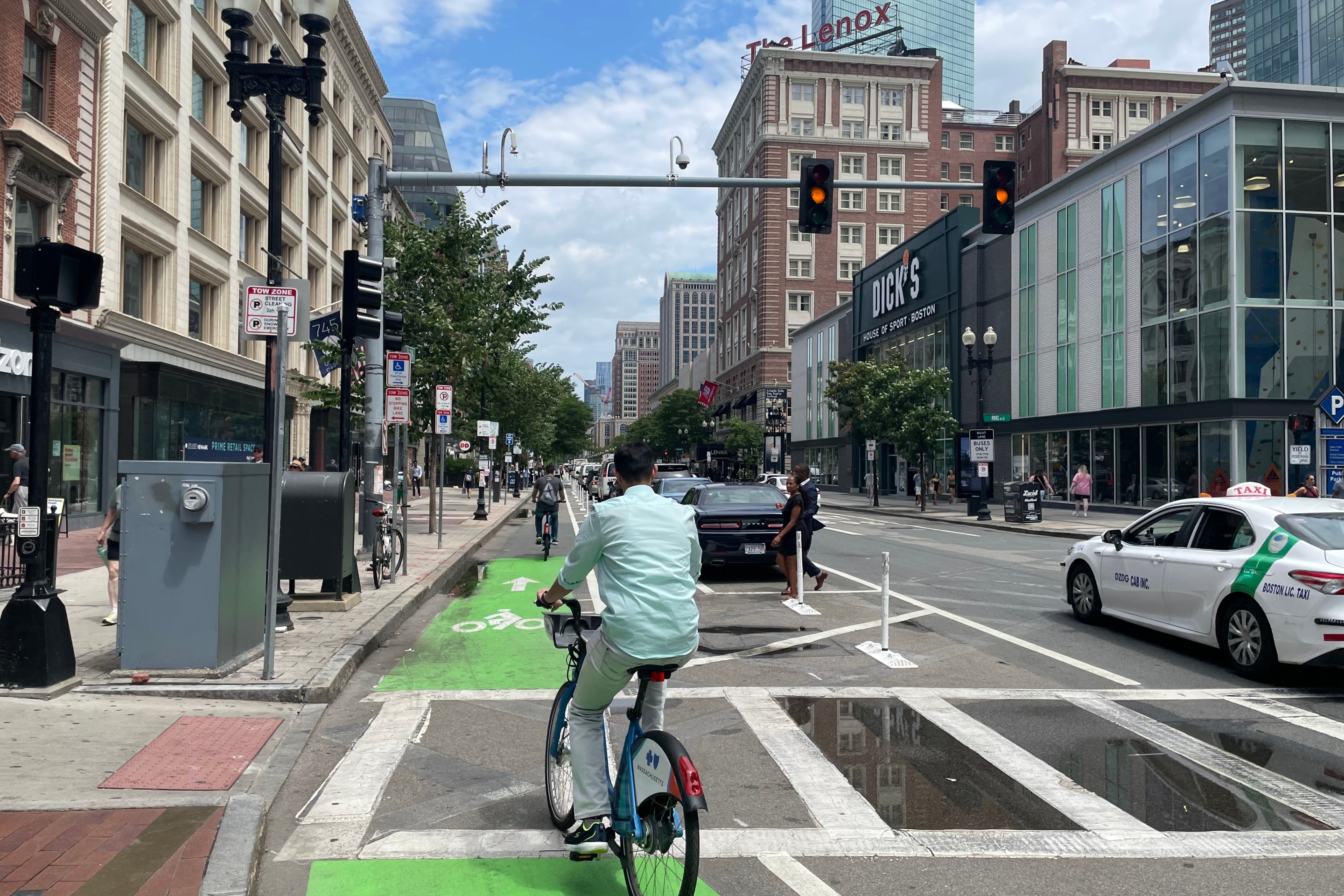In the Spring Hill neighborhood of Somerville, the city is wrapping up a three-year construction project that tore up and completely rebuilt several residential streets as part of a major sewer replacement project.
The primary goal of the Spring Hill sewer separation project was to replace 19th-century sewer pipes that frequently flooded and overflowed into local waterways during rainstorms.
But because the project required the city to rip up entire streets to replace the pipes underneath them, it also created an opportunity to redesign these streets from scratch, with new speed humps, protected bike lanes, and raised crosswalks.
The project also replaced thousands of square feet of what had formerly been asphalt parking areas with new gardens designed to absorb runoff during rainstorms.
Many of these gardens are located at intersections and crosswalks, and thus serve the additional purposes of calming traffic, reducing the heat island effect, and improving visibility for pedestrians (and more subjectively, some might argue that they're considerably more attractive than an asphalt parking spot).
When we first wrote about this project last year, Dan Amelin, a City of Somerville engineer, told StreetsblogMASS that all these new tree plantings and gardens add up to about 6,750 square feet of new green space for the city.
Some of the biggest changes are visible on Summer Street, where the city upgraded what was formerly a paint-only bike lane with a new curb-protected design to afford some physical separation between cars and bicycle users who are climbing up Spring Hill from Union Square.
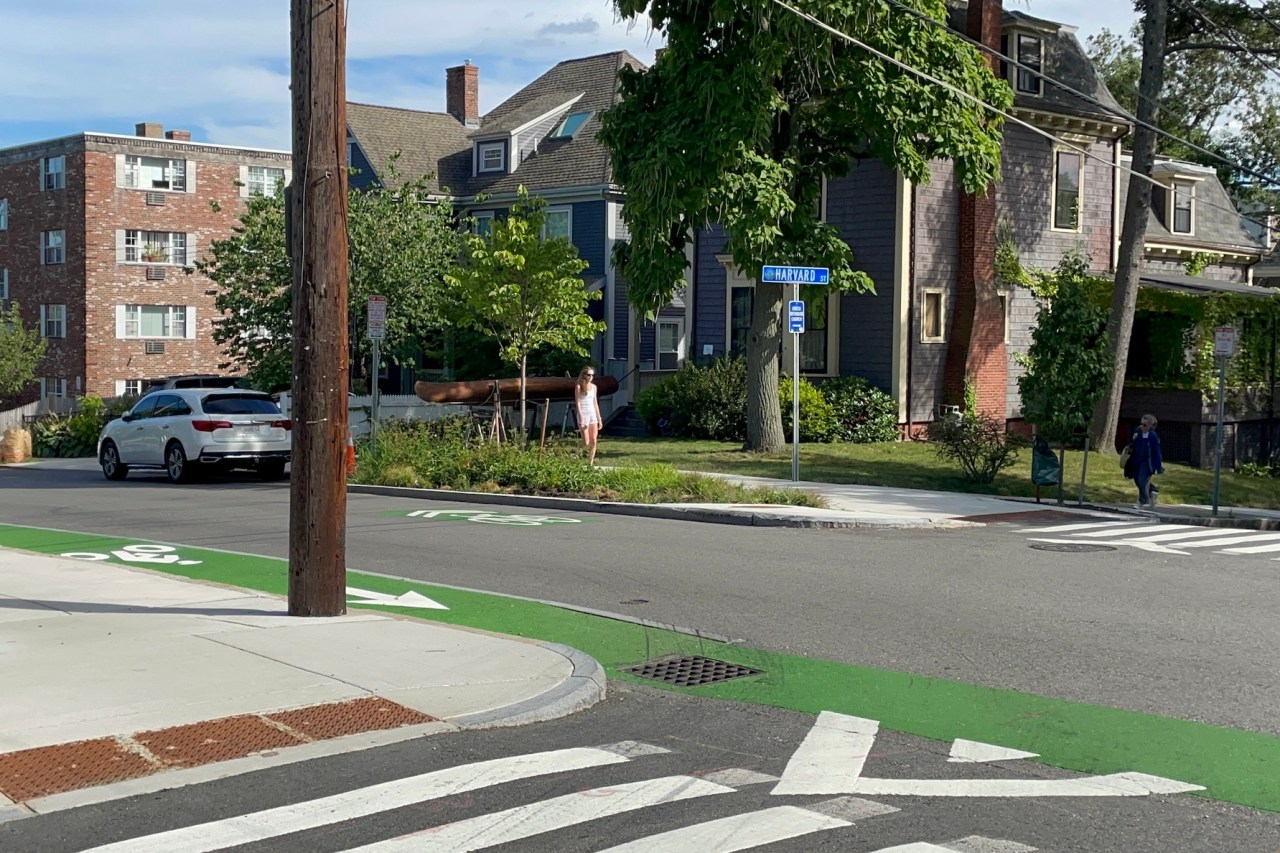
On Central Street, which is one of the few streets that crosses the width of Somerville from Broadway in the north to Somerville Avenue in the south, the project installed a pair of sidewalk-level bike lanes on either side of the street.
Central Street is now one-way for cars, but it's a two-way street for bike traffic, with multiple new high-visibility raised crosswalks.
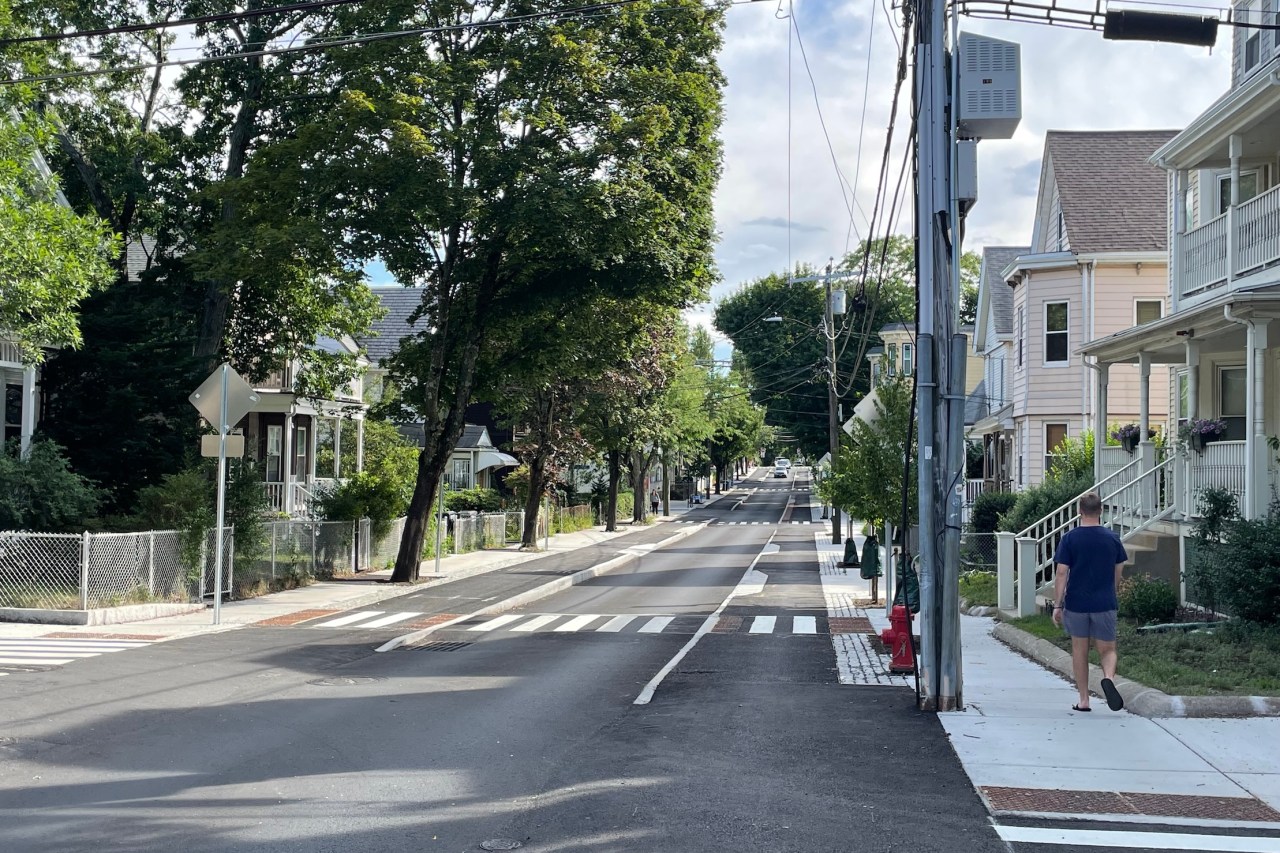
A future phase of work – tentatively scheduled to begin construction in the city's 2027 budget year – will reconstruct Highland Avenue with new bike and pedestrian improvements.
City officials have committed to installing new protected bike lanes on both sides of that street from Davis Square to the McGrath Highway as part of that project. The street was also identified as a "priority" location for the city to install protected bike lanes under the city's bike network plan and the subsequent 2024 safe streets ordinance.
This story was updated at 10 a.m. on Friday, August 1 to update the city's timeline and clarify details about its Highland Avenue project.
